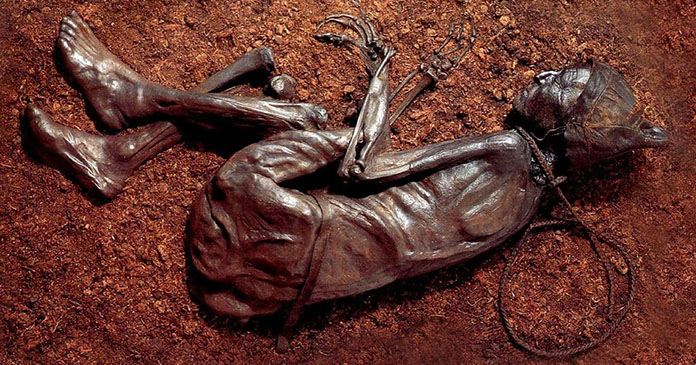
The Tollund Man was found in a bog. He lived during the 4th century.
The responsibilities of free will have vexed man for centuries.
Shortcutting across a muskeg bog during a Rocky Mountain backpacking trip is an epically bad decision. From a distance, the muskeg bog looks fine—often quite lush and beautiful, like a meadow dotted with hummocks, stunted trees, and stagnant dark pools. Muskeg forms in small mountain lakes with no drainage, so spring snow melt has nowhere to go. Water doesn’t evaporate during cool high-country summers. Over many years, pond weed grows and decays, clogs up the lake, and finally forms a muskeg mat.
Naïve young moose are particularly at risk as their hooves are small relative to their weight. If they wander out onto the muskeg in search of browse, they can break through the mat and drown.
Naïve backpackers have plenty in common with teenage moose. The first few steps onto the muskeg seem fine. Ten or twenty yards out from the shore, every step makes the matted surface ripple and quake.
Then gripping fear: what if I step wrong and break through? I would be trapped under the mat and drown in stinking, dark water.
Finding the way back onto solid ground becomes a desperate necessity. What’s the shortest, safest escape route? Are there enough hummocks, close enough together, to bear my weight?
Today’s culture is a muskeg bog.
From a distance, it appears okay, in fact, quite beautiful. The more we’re lured out onto its quaking surface, however, the greater the chance of falling into disaster.
It is, after all, a well-designed trap. The danger is purposely hidden to the advantage of the bog ecosystem.
The bog beckons with false messages in order to draw in the unsuspecting, the naïve, the gullible. Its existence is parasitical. It exists on the deaths of other organisms. As with today’s culture.
The culture sends false signals like freedom is doing what you want. There’s your truth and my truth. You have no right to impose your will on me. If it feels good, do it. Don’t be judgmental, be accepting. When grandma quips, “We get old too soon, but smart too late,” ignore her. She’s old and clueless.
To get off the cultural muskeg, job one is to find solid ground. It’s difficult. The endless siren of the muskeg suggests it’s where you live your best life. Solid ground is an illusion.
Job two, seek truth. This provides a natural immunity to ignorance, which subjects hikers and others to becoming a host to the many parasites awaiting you in the darkness of the bog. Make better listening choices. It’s a challenge to turn off the blather and search out what’s good, true, and beautiful. The mind and soul were created for good, truth and beauty. Its intrinsic nature is stability. Finding the hidden treasure of goodness, truth and beauty delivers an obvious relief to the mind and soul. It’s both intense and worth the discipline of breaking with the cultural pressure.
Job three is to start picking your way, slowly and carefully, from hummock to hummock until you make it to terra firma. On the way, if you can help lead others to safety, so much the better. With courage and perseverance, no more muskeg.
What’s the solid ground? Faith in Jesus Christ.
